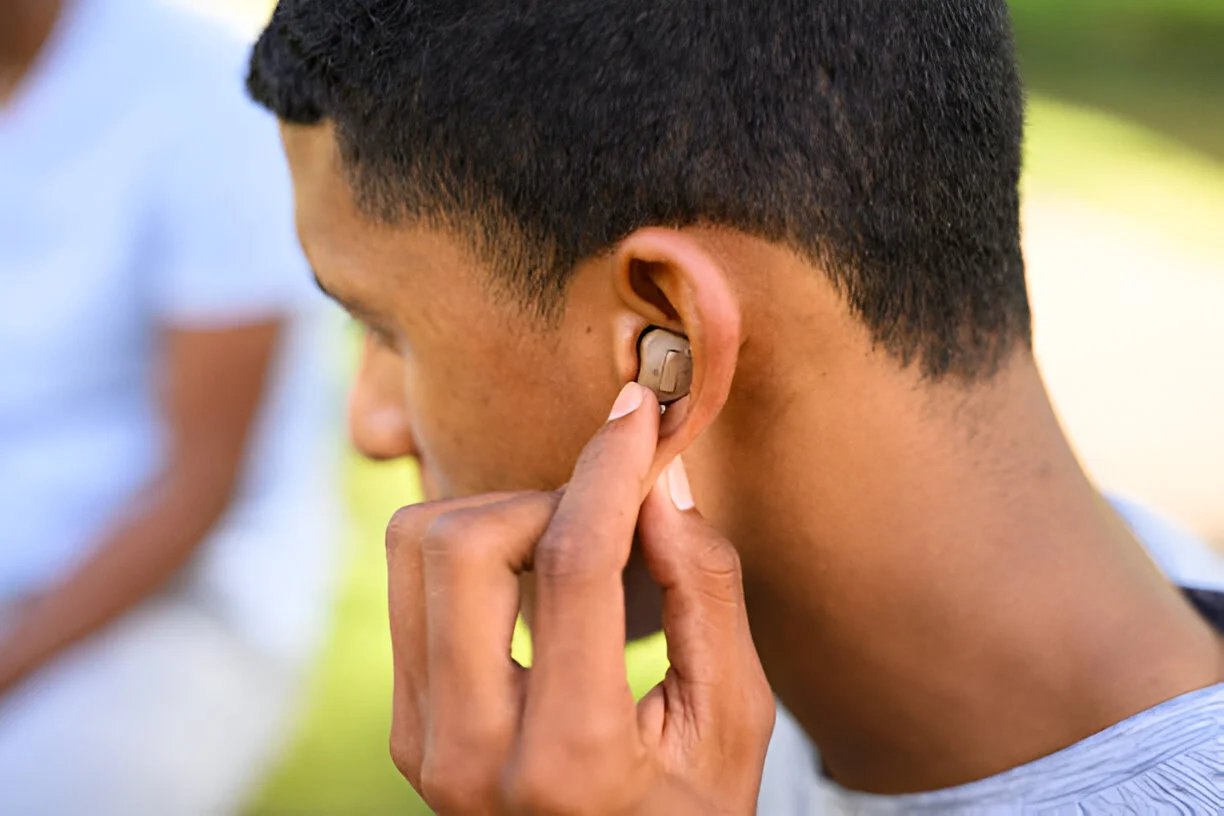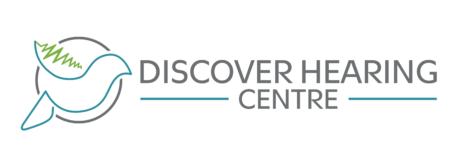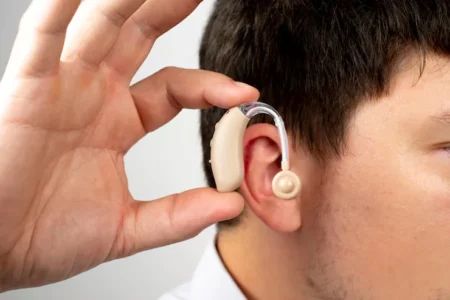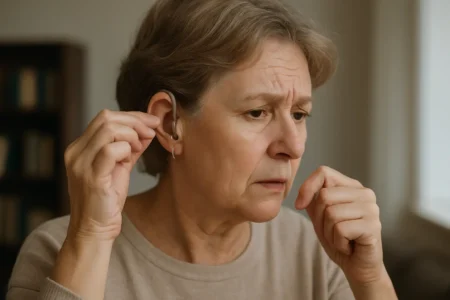How to Choose the Right Hearing Aid for Your Lifestyle

Hearing aids are a crucial part of hearing loss management and maintaining your quality of life. This makes choosing the right hearing aid vital, especially with many different options on the market. Finding a hearing aid that fits your lifestyle, daily environments, and activities can be challenging, so we’ve put together this guide to help you get a comprehensive overview of which types of hearing aids are available, how to properly assess your lifestyle needs, how to customize them and more to ensure you can make an informed decision.
Understanding Hearing Aids
Hearing aids are small electronic devices designed to amplify sound for individuals with hearing loss. They typically consist of a microphone, an amplifier, and a speaker, all working together to enhance hearing by making sounds louder and clearer. The process begins with the microphone capturing sound and converting it into electrical signals. These signals are then amplified and sent to the speaker, delivering the amplified sound into the ear.
Types of Hearing Aids
There are various hearing aids, each designed for different levels of hearing loss and personal preferences.
- Behind-the-ear (BTE) hearing aids rest behind the ear and are connected to an earmold inside the ear canal. They are suitable for various degrees of hearing loss and offer robust amplification.
- In-the-ear (ITE) hearing aids fit completely inside the outer ear. They are custom-made to fit your ear and are typically used for mild to severe hearing loss.
- In-the-canal (ITC) hearing aids are smaller than ITE devices and fit partly in the ear canal. Compared to the first two options, they are more discreet and provide adequate amplification for mild to moderate hearing loss.
- Completely-in-canal (CIC) hearing aids are nearly invisible as they fit entirely within the ear canal. They are suitable for mild to moderate hearing loss, but due to their small size, they may have fewer features.
Assessing Your Lifestyle Needs
Your lifestyle, such as daily activities, hobbies and interests, can play a significant role in determining which type of hearing aid is right for you.
Work Environment
When considering work environments, if you work in an office setting, a device with good noise reduction and directional microphones will allow you to focus on conversations amidst background noise. On the other hand, if you’re an outdoor worker, the focus might be more on finding a durable and weather-resistant option. With more people working from home, their needs are more reflected in hearing aids compatible with home audio and communication systems.
Social Interactions
However, you also have to consider your social interactions. If you frequently attend meetings, gatherings, and events, you should look for hearing aids with clear speech recognition and effective noise-canceling technology. For quieter social settings, hearing aids with a comfortable fit and minimal interference are ideal.
Hobbies and Interests
Your hobbies and interests also play a part in determining the most suitable hearing aid features. If you’re a music fan, a hearing aid with high-quality sound reproduction and adjustable settings to enjoy your favourite tunes is likely very high on your list. For outdoor and sports activities, you should look out for hearing aids with a robust design and moisture resistance that can withstand some bumps and an occasional rain shower. If you enjoy reading and quiet time, devices that offer comfort and clarity in quieter environments are likely for you.
You Might Also Like: How Do I Know If I Need a Hearing Aid? Key Signs & Solutions
Considerations for Different Environments
Hearing aids are designed to boost hearing and allow people to enjoy a regular quality of life. However, when researching the right hearing aid, you must also consider different environments.
Quiet Environments
Hearing aids with basic amplification and clear sound reproduction are sufficient in quiet environments such as homes and libraries. These devices should also have low-noise profiles and a comfortable fit to provide the best experience in silent settings.
Moderate Noise Environments
If you often frequent moderate-noise environments like restaurants, cafes, and small group gatherings, you’ll likely prefer hearing aids with noise reduction and directional microphones to help you distinguish speech from background noise. Devices with adaptive sound technology are particularly beneficial in these settings, providing you with more clarity and comfort.
High Noise Environments
High-noise environments, such as concerts, theatres, sporting events, and public transport, demand a completely different profile. In these cases, you will want to look for advanced noise reduction and high-fidelity (hi-fi) sound reproduction. Strong noise-cancelling technology also ensures effective hearing amidst loud background noise so you can enjoy the performances and events without distraction.
Hearing Aid Features for Different Activities
Thanks to technological advancements, hearing aids these days come with various features suited for different activities. For example, directional microphones are crucial in noisy environments. They focus on sounds from a specific direction and improve speech recognition by filtering out background noise. This feature is particularly useful in places like restaurants and social gatherings, where distinguishing conversations can be challenging depending on the general noise level.
Noise Reduction Technology
Noise reduction technology has been steadily improving. It minimizes unwanted ambient sounds, providing a more comfortable listening experience. Different noise reduction settings allow you to customize your hearing aids for specific environments, from quiet rooms to louder streets. This is beneficial in various settings and ensures that you hear what you need to without being overwhelmed by background noise.
Connectivity Options
Modern hearing aids often feature Bluetooth and wireless capabilities, allowing seamless connection to smartphones and other devices. This feature ensures that your hearing aids can connect with your daily tech for phone calls, music streaming, and more, enhancing your overall experience and giving you top-of-the-line sound quality without having to worry about ambient noise interfering.
Also Read: How Long Do Hearing Aids Last? Lifespan & Maintenance
Customization and Comfort
Fit and Comfort
The best hearing aid will not be of much use if you don’t feel comfortable with it, and it either irritates you or makes you not want to wear it. Custom-moulded earpieces offer a personalized fit, enhancing comfort and reducing the risk of irritation during extended wear. When choosing a hearing aid, ensure that you choose one that is designed for all-day use, focusing on lightweight and ergonomic designs that ensure comfort over long periods.
Aesthetic Considerations
If you’re concerned with appearance, discreet models like CIC (completely in the ear canal) or ITC (in the ear canal) hearing aids are ideal. Hearing aids come in various colours and styles, allowing you to personalize them to match your preferences. This ensures that your hearing aid functions well and looks great.
Consulting with a Hearing Specialist
A hearing specialist can conduct a thorough hearing test to determine the specific type and degree of hearing loss. This can build the foundation for finding the most appropriate hearing aid. Their expertise can help you narrow down the myriad options available to ensure you can find the perfect hearing aid for your needs.
Some providers offer trial periods, allowing you to test different hearing aids to find the best fit. A professional hearing care provider can make adjustments to fine-tune the device for optimal performance and ensure you get the best possible hearing experience.
Maintenance and Care
Maintenance and care are two key considerations to ensure your hearing aid will work at its peak for as long as possible. This begins with regular cleaning, as the buildup of earwax and debris can affect the device’s functionality. Establish a daily cleaning routine and store hearing aids in a dry, safe place when not in use to avoid damage.
Battery Life and Replacement
Hearing aids use disposable or rechargeable batteries, so understanding their options is critical to managing both costs and convenience. When not in use, turn off your hearing aids to prolong their battery life. This will ensure they’re always ready when you need them.
Get the Right Hearing Aid
Choosing the right hearing aid can make a big difference in your daily life. You must consider a wide range of factors, from your lifestyle and daily environments to your personal preferences. Understanding the different types of hearing aids and their features can help you find the best option. Consulting with a professional hearing care provider can assist you in finding a hearing aid that effectively meets your needs.
Visit our hearing clinic in Kitchener and schedule a hearing test with our professional experts. We offer comprehensive audiology services, from hearing tests and education to digital hearing aids and personalized hearing loss treatments that put you and your specific hearing health needs at the centre. Whether you need a hearing test, are looking for invisible hearing aids or require help with hearing aid fittings and programming, Discover Hearing Centre is here for you.
Discover Hearing Centre is a local clinic specializing in the treatment of hearing loss; we’ve worked with hundreds of patients to help them maintain independence. Whether you’re experiencing hearing loss or tinnitus, we’re dedicated to improving your quality of life through better hearing. When you choose us, you choose a team committed to your well-being.
Call us today at 519-208-4327 or fill out our convenient online form to learn more about how we can help you with hearing loss issues.
You Might Also Like
Behind-the-Ear vs. In-the-Ear Hearing Aids: Which One Is Right for You?
Common Mistakes First-Time Hearing Aid Users Make and How to Avoid Them
The Link Between Tinnitus and Hearing Loss: What You Need to Know
Have Questions?
Curious about hearing loss, tinnitus relief, or treatment options in Waterloo? Talk to one of our hearing care professionals today.





